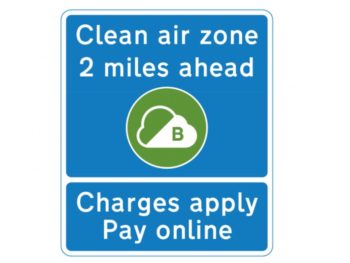Local authorities are being urged to look at alternatives to charging Clean Air Zones (CAZs) to ensure emissions are cut in a long-term way that also doesn’t hit SMEs hardest.

The call comes from the FTA, which has written a briefing note to support local authorities which have been asked by government to model CAZs, explaining the limitations of these disruptive schemes and advising them on alternative solutions, such as ULEV incentives, better management of congestion, and enabling more deliveries to be retimed.
Published as Coventry City Council reiterates its own position that a Class D (including cars and vans) charging Clean Air Zone is not needed in its own city despite DEFRA saying otherwise, the advisory document sets out the FTA viewpoint that the benefits of Clean Air Zones will be short-lived as the transition to Euro 6 vehicles will happen anyway as part of the natural fleet replacement cycle.
The document also says CAZs are not cheap for local authorities to implement and the FTA believes the money could be better invested in measures that will enable those who can to make changes to their fleet or operations rather than penalising those with the least means to buy replacement vehicles. Additionally, the benefits from these measures will last far beyond the time-limited ones a CAZ may provide.
And while in some locations, use of a CAZ will be unavoidable due to required legal compliance with European Union (EU) targets, the FTA says there are approaches to CAZs that can at least minimise the impact on local businesses, without negating the temporary air quality benefit they are supposed to have.
Natalie Chapman, head of urban policy at FTA, said: “Clean Air Zones – schemes designed to discourage the use of older, more polluting vehicles (pre-Euro 6 models) by imposing a charge upon them as they enter a designated area – will not provide any lasting benefit to air quality; they also hit the small businesses and specialist operators who can least afford to pay.
“FTA has produced a briefing note to support local authorities mandated by government to consider implementing a CAZ in the coming years to warn them of the limitations of the scheme. This includes our advice to authorities to focus their resources on incentivising the uptake of alternatively fuelled and electric commercial vehicles. We want to see local authorities build more charging points for electric vehicles and work alongside electricity suppliers to ensure there is enough grid capacity to support these developments.”
To read the FTA’s briefing note, click here.

